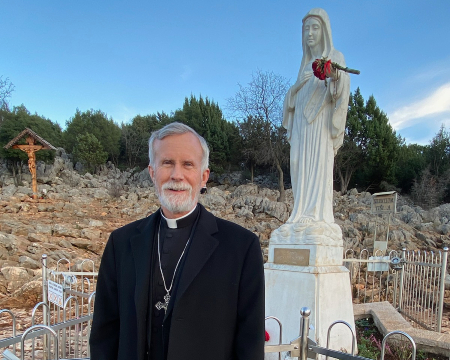Cicero and Natural Law: The Only Pagan Worthy of the Catechism
FREE Catholic Classes
For there is a true law: right reason. It is in conformity with nature, is diffused among all men, and is immutable and eternal; its orders summon to duty; its prohibitions turn away from offense . . . . To replace it with a contrary law is a sacrilege; failure to apply even one of its provisions is forbidden; no one can abrogate it entirely.
Highlights
Catholic Online (https://www.catholic.org)
8/9/2012 (1 decade ago)
Published in Living Faith
Keywords: natural law, Cicero, moral law, freedom, choice, pagan, reason, Fides et Ratio, Andrew Greenwell
CORPUS CHRISTI, TX (Catholic Online) - There are 3,706 citations or quotations in the Catechism of the Catholic Church. Of these, all but one are citations to or quotations from Christian sources--to Scripture, the Fathers and Doctors of the Church, Conciliar Documents, Papal Encyclicals, the Liturgy, the wisdom of the Saints.
There is only one citation or quotation in the entire Catechism to a Pagan author. That quotation is found in § 1956 of the Catechism, where the Catechism treats of the natural law. The Catechism states:
For there is a true law: right reason. It is in conformity with nature, is diffused among all men, and is immutable and eternal; its orders summon to duty; its prohibitions turn away from offense . . . . To replace it with a contrary law is a sacrilege; failure to apply even one of its provisions is forbidden; no one can abrogate it entirely.
Unremarkably, the Church's teaching is announced via a quotation.
What is remarkable is that the Catholic Church, in the Catechism, selected this particular quotation.
The quotation is taken from the writings of the Roman Statesman and Lawyer Marcus Tullius Cicero (ca. 106-43 BC). Specifically, to Book III, section 33 of his Republic.
It is fitting that the Church relies on a pagan to announce to the faithful that there is a natural moral law. The point the Church is trying to make is that the natural law, being based upon reason and accessible at least in theory without recourse to revelation, is available and accessible to all human persons universally. Because we are brothers, under one God, we have but one Law, the natural moral law. Unless operating under ignorance, or bias, or blinded by convention, the virtuous pagan will see it, as will all men and women of good will. And so virtuous pagans, men and women of good will, and Christians can work together for just and equitable laws in the City of Man.
The great Catholic humanist Erasmus, it has been written, exclaimed upon reading Cicero's De Senectute, "Vix me contineo, quin exclamen: Sancte Cicero, ora pro nobis." We might translate it thus: "I can hardly refrain from crying out, Holy Cicero, pray for us."
Though perhaps we would not go so far as Erasmus in treating Cicero as a saint, we surely can recognize in words of Cicero, especially those selected by the Church in her Catechism, a reflection of the the Eternal Law that God has placed in the heart and consciences of men and women. Cicero had learned his doctrine from the Stoics, philosophers with no connection to the Gospel.
Perhaps St. Paul knew of or even recalled the words of Cicero selected by the Church to grace the pages of her Catechism when he wrote his epistle to the Romans: "For when the Gentiles who do not have the law by nature observe the prescriptions of the law, they are a law for themselves even though they do not have the law. They show that the demands of the law are written in their hearts, while their conscience also bears witness and their conflicting thoughts accuse or even defend them on the day when, according to my gospel, God will judge people's hidden works through Christ Jesus." (Rom. 2:14-16).
-----
Andrew M. Greenwell is an attorney licensed to practice law in Texas, practicing in Corpus Christi, Texas. He is married with three children. He maintains a blog entirely devoted to the natural law called Lex Christianorum. You can contact Andrew at agreenwell@harris-greenwell.com.
---
'Help Give every Student and Teacher FREE resources for a world-class Moral Catholic Education'
Copyright 2021 - Distributed by Catholic Online










 Daily Readings for Saturday, April 20, 2024
Daily Readings for Saturday, April 20, 2024 St. Marian: Saint of the Day for Saturday, April 20, 2024
St. Marian: Saint of the Day for Saturday, April 20, 2024 Children's Prayer For Parents: Prayer of the Day for Saturday, April 20, 2024
Children's Prayer For Parents: Prayer of the Day for Saturday, April 20, 2024

